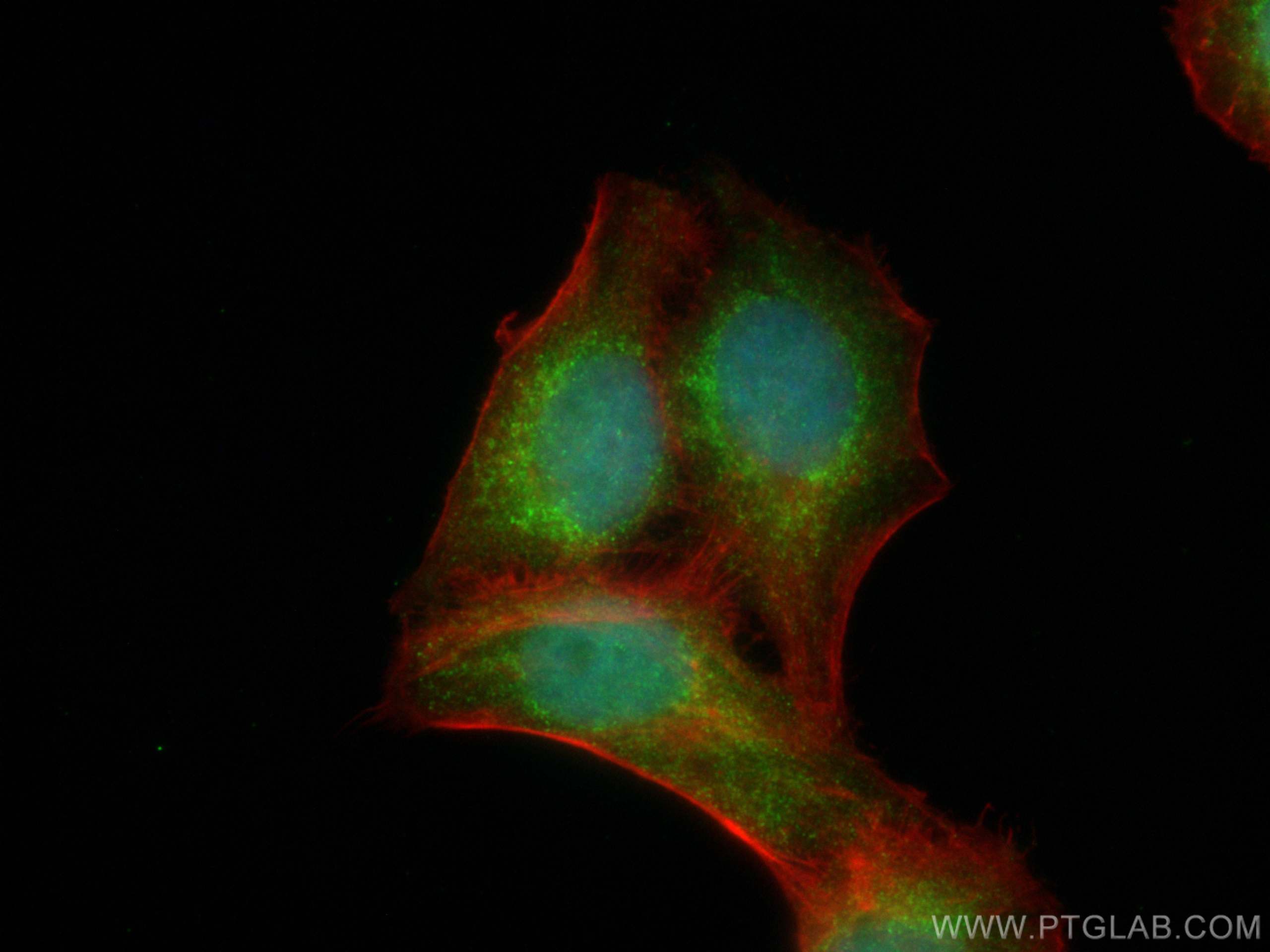- Phare
- Validé par KD/KO
Anticorps Monoclonal anti-PRAME
PRAME Monoclonal Antibody for IF
Hôte / Isotype
Mouse / IgG2b
Réactivité testée
Humain, rat, souris
Applications
IF
Conjugaison
CoraLite® Plus 488 Fluorescent Dye
CloneNo.
1E9G9
N° de cat : CL488-68097
Synonymes
Galerie de données de validation
Applications testées
| Résultats positifs en IF | cellules HaCaT, |
Dilution recommandée
| Application | Dilution |
|---|---|
| Immunofluorescence (IF) | IF : 1:50-1:500 |
| It is recommended that this reagent should be titrated in each testing system to obtain optimal results. | |
| Sample-dependent, check data in validation data gallery | |
Informations sur le produit
CL488-68097 cible PRAME dans les applications de IF et montre une réactivité avec des échantillons Humain, rat, souris
| Réactivité | Humain, rat, souris |
| Hôte / Isotype | Mouse / IgG2b |
| Clonalité | Monoclonal |
| Type | Anticorps |
| Immunogène | PRAME Protéine recombinante Ag1906 |
| Nom complet | preferentially expressed antigen in melanoma |
| Masse moléculaire calculée | 509 aa, 58 kDa |
| Poids moléculaire observé | 50 kDa |
| Numéro d’acquisition GenBank | BC014074 |
| Symbole du gène | PRAME |
| Identification du gène (NCBI) | 23532 |
| Conjugaison | CoraLite® Plus 488 Fluorescent Dye |
| Excitation/Emission maxima wavelengths | 493 nm / 522 nm |
| Forme | Liquide |
| Méthode de purification | Purification par protéine A |
| Tampon de stockage | PBS avec glycérol à 50 %, Proclin300 à 0,05 % et BSA à 0,5 %, pH 7,3. |
| Conditions de stockage | Stocker à -20 °C. Éviter toute exposition à la lumière. Stable pendant un an après l'expédition. L'aliquotage n'est pas nécessaire pour le stockage à -20oC Les 20ul contiennent 0,1% de BSA. |
Informations générales
The PRAME (preferentially expressed antigen of melanoma) gene was previously shown to be overexpressed in ovarian/primary peritoneal serous carcinoma compared with malignant mesothelioma using gene expression arrays. It is considered a melanocyte differentiation antigen which is overexpressed in both solid and hematologic tumors. In normal tissue, a very low level of PRAME expression is found in normal testis, adrenals, ovary and endometrium. A high level of PRAME expression has been reported for several solid tumors, including ovarian cancer, breast cancer, lung cancer and melanomas, medulloblastoma, sarcomas, head and neck cancers, neuroblastoma, renal cancer, and Wilms'tumor. As a nuclear transcriptional repressor protein, PRAME binds to retinoic acid receptor a, thereby inhibiting retinoic acid induced differentiation, growth arrest, and apoptosis.
Protocole
| Product Specific Protocols | |
|---|---|
| IF protocol for CL Plus 488 PRAME antibody CL488-68097 | Download protocol |
| Standard Protocols | |
|---|---|
| Click here to view our Standard Protocols |


